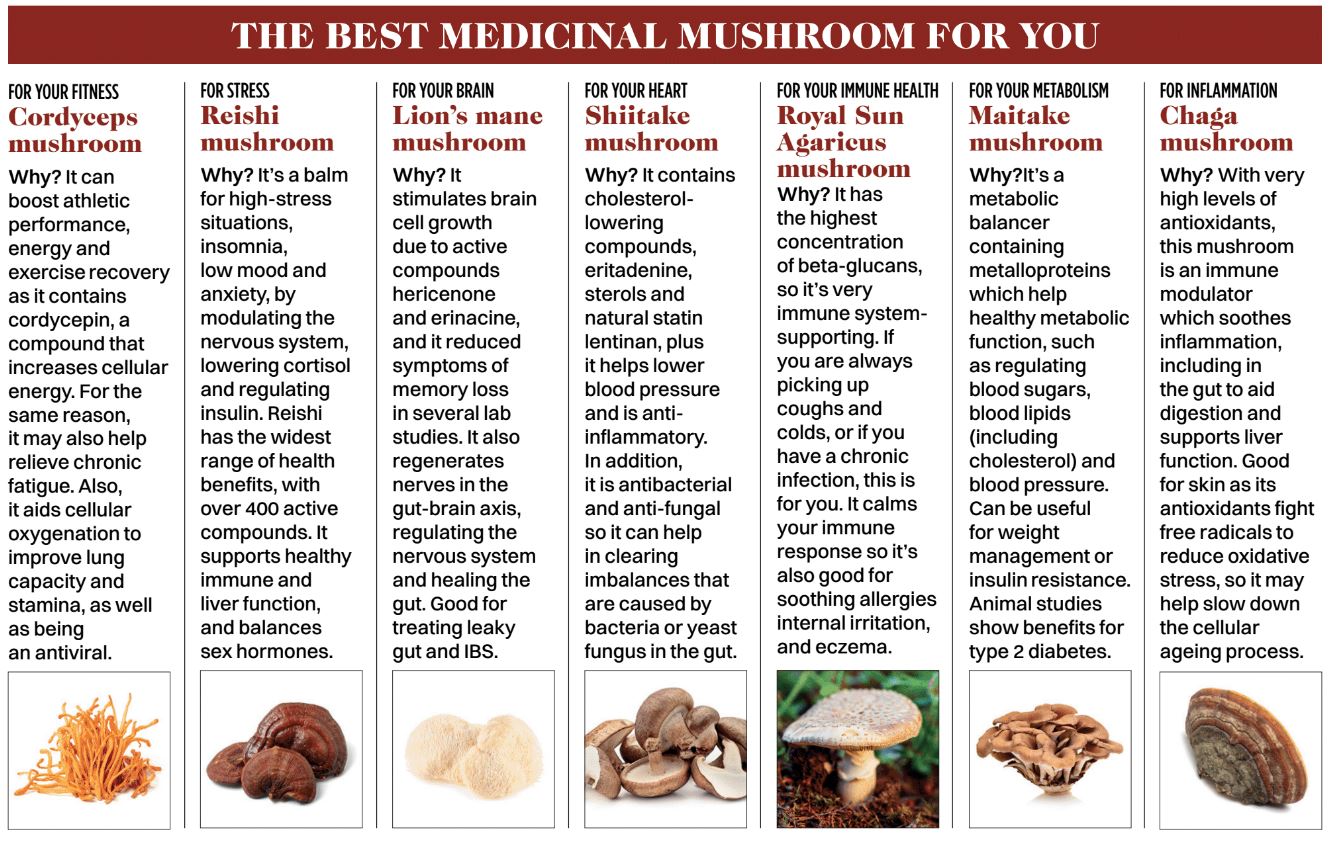Medicinal fungi have garnered considerable attention in both traditional wisdom and contemporary health discourse. These remarkable organisms, transcending the mundane classification of ‘mushrooms’, stand at the intersection of nature’s pharmacy and human ingenuity. Their multifaceted applications in enhancing health and well-being present not just a tantalizing opportunity for exploration, but a challenge to conventional approaches to medicine. Let us delve into the vast universe of medicinal fungi, examining the notable types and their myriad benefits, while encouraging a critical engagement with nature’s offerings.
Understanding the Myriad Roles of Medicinal Fungi
Throughout history, different cultures have lauded the benefits of fungi. Sacred texts, herbal manuscripts, and even folk tales often feature these organisms. The role of fungi is not purely anecdotal; scientific exploration has elucidated their biochemical complexities. This section presents an overview of prominent medicinal fungi and an exposition of their health benefits, inviting readers to consider how these natural entities can harmonize with modern health paradigms.
The Marvelous Reishi Mushroom: Nature’s Adaptogen
Known as Ganoderma lucidum, the Reishi mushroom has been revered in Traditional Chinese Medicine (TCM) for centuries. Its classification as an adaptogen highlights its capacity to enhance the body’s resilience against stress. The triterpenoid compounds, notably ganoderic acids, are thought to impart immunomodulatory effects, reducing inflammation while simultaneously enhancing overall immune function. Studies indicate that Reishi may ameliorate fatigue and improve quality of life in patients suffering from chronic diseases. The challenge lies in discerning how Reishi can be seamlessly integrated into dietary regimens, transforming it from a niche remedy into a mainstream health supplement. Can this ancient remedy find its rightful place on your dinner plate?
Chaga: The Black Gold of the Forest
In the realm of medicinal fungi, the Chaga mushroom (Inonotus obliquus) emerges as a formidable contender, manifesting as a knobby, charcoal-like growth on birch trees. This peculiar fungus has been exalted by both folklore and scientific inquiry for its impressive antioxidant properties, largely attributed to the presence of superoxide dismutase and other phenolic compounds. With a substantial capacity for scavenging free radicals, Chaga possesses the potential to mitigate oxidative stress, associated with numerous chronic maladies including diabetes and cancer. Furthermore, preliminary research suggests Chaga may enhance insulin sensitivity. As we ponder the implications of Chaga consumption, a question arises: could this forest dweller be the key to redefining holistic health approaches?
Turkey Tail: The Immune Modulator
Clumping together in fan-shaped formations, Turkey Tail (Trametes versicolor) mushrooms resonate with visual appeal while packing a potent immunological punch. Rich in polysaccharopeptides, particularly polysaccharide-K (PSK) and polysaccharide peptide (PSP), this fungus has emerged as a pivotal player in oncology support frameworks. Research indicates that PSK can bolster the efficacy of conventional cancer therapies by modulating immune responses without inducing significant adverse effects. With the rise of integrative oncology, how does Turkey Tail adjust our perception of adjunctive therapies? It challenge practitioners: should Turkey Tail be prescribed as a preventative measure, rather than solely as a therapeutic adjunct?
Lion’s Mane: The Cognitive Enhancer
With a unique, cascading appearance reminiscent of a lion’s mane, this fungus (Hericium erinaceus) has secured its status as a cognitive enhancer in herbal circles. Rich in erinacines and hericenones, compounds that stimulate nerve growth factor (NGF) synthesis, Lion’s Mane presents an intriguing avenue for neuroprotection and cognitive health. Emerging studies suggest its capacity to alleviate mild cognitive impairment, bolster memory, and combat the neurodegenerative effects of aging. Does the prospect of improving cognitive function through a simple dietary addition appeal? Engaging with this possibility urges a contemplative stance on the intersections of nutrition and cognition.
Cordyceps: The Performance Enhancer
Cordyceps, enchanting in its lifecycle, transforms from parasitic fungus to a sought-after health tonic. Its bioactive compounds, particularly cordycepin, render it a subject of scrutiny in athletic performance enhancement. Investigations indicate that Cordyceps may improve oxygen utilization and endurance during physical exertion. For athletes and fitness enthusiasts, could this primeval herbal remedy augment performance in ways conventional substances cannot? By embracing the Cordyceps paradigm, one finds a bridge between ancient tradition and modern science.
Psilocybin Mushrooms: The Frontier of Mental Health
Stepping into a more controversial realm, psilocybin mushrooms have entered the spotlight for their profound psychological effects. Studies have illuminated their potential in treating conditions such as major depressive disorder, anxiety, and PTSD through facilitated psychedelic experiences. The psychoactive compound psilocybin appears to induce neuroplasticity, fostering pathways for emotional healing. This prompts a critical inquiry: can we reconcile the therapeutic benefits of psychedelics with established psychiatric paradigms? The juxtaposition of tradition and emerging clinical evidence presents both a challenge and an opportunity for a deeper understanding of consciousness.
Integrating Medicinal Fungi into Daily Life
The allure of medicinal fungi is beckoning, yet the apprehension surrounding their use often impedes curiosity. One practical suggestion includes incorporating powdered extracts into smoothies, soups, or herbal teas. For those adventurous in cooking, consider integrating dried mushrooms into risottos or pasta dishes. Furthermore, cultivating your own mushrooms could afford both a rewarding hobby and a personal apothecary. Have you pondered the simplicity of producing this rich ecosystem in your garden? Alternatively, consulting healthcare professionals on the integration of mushroom supplements could provide clarity and direction.
Final Musings: The Challenge of Enlightenment
As we traverse the intricate pathways of medicinal fungi, it is evident that these remarkable organisms hold great promise for enhancing human health. Each type we explored presents not merely a biological entity but an invitation to interrogate our existing paradigms of health and wellness. This invitation extends to readers, challenging you to consider how these ancient allies can be woven seamlessly into the contemporary fabric of health practices. Shall we embrace the wisdom of nature to illuminate our path towards vitality?
